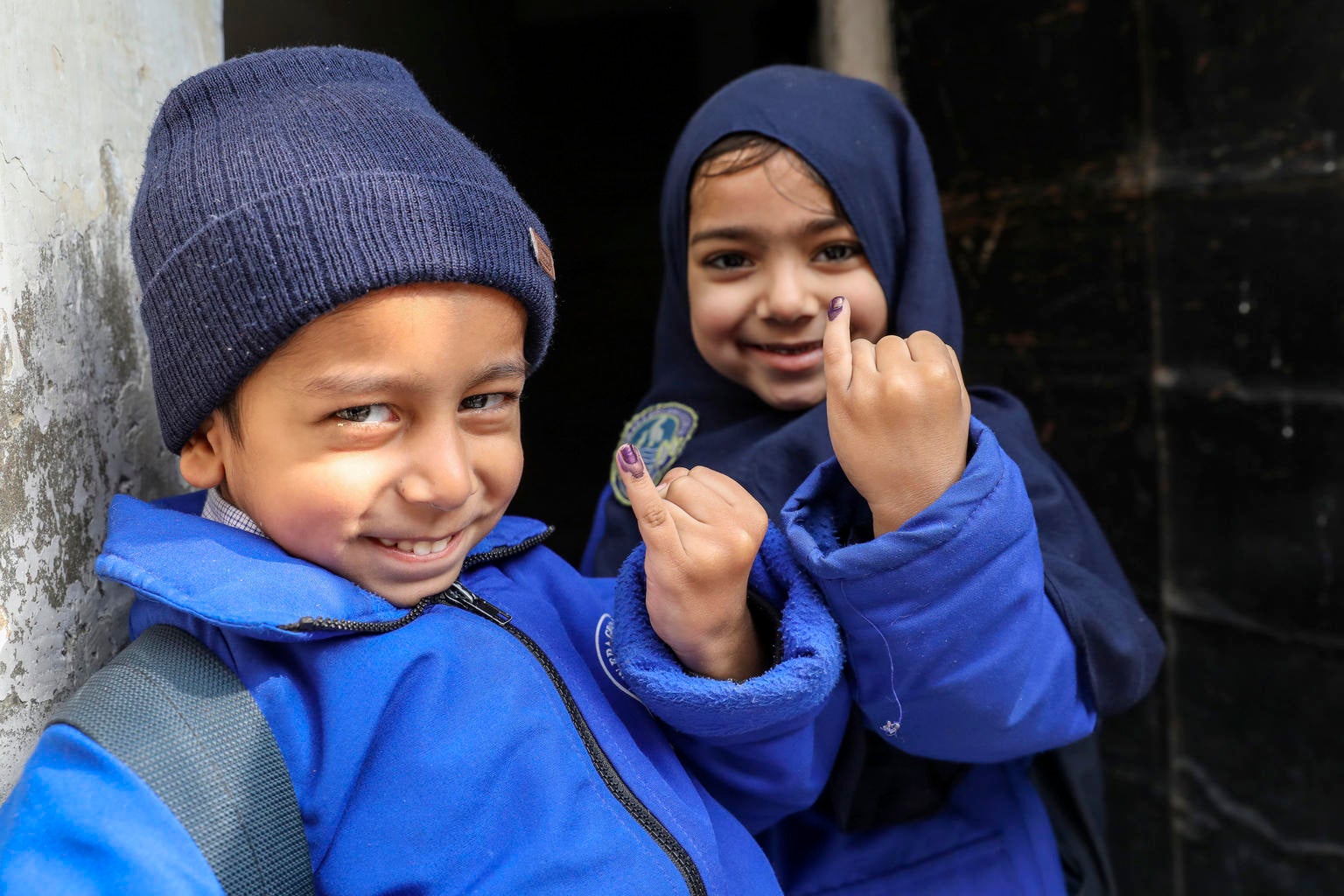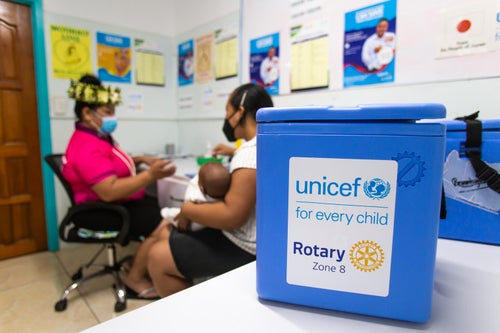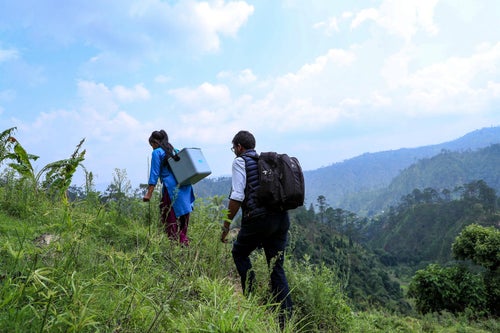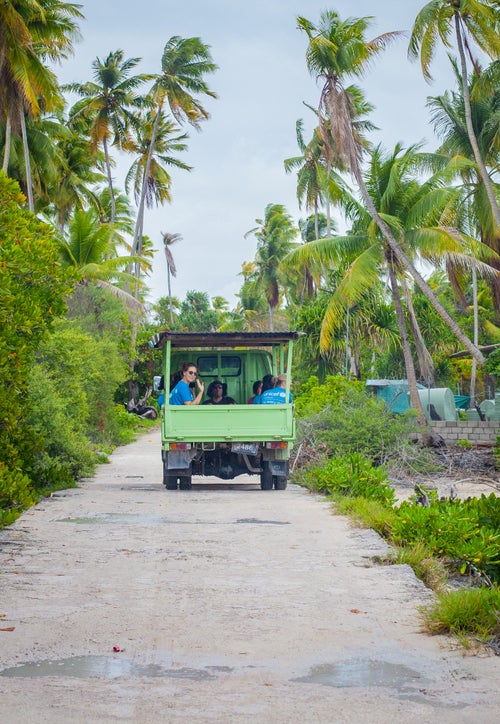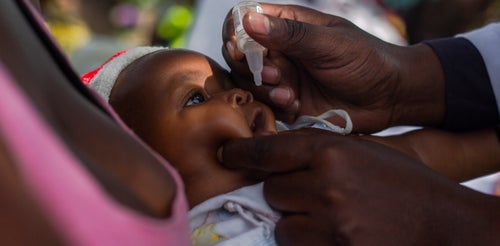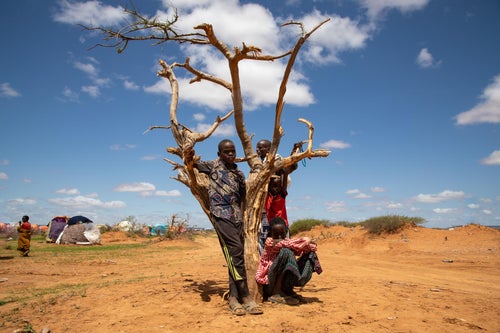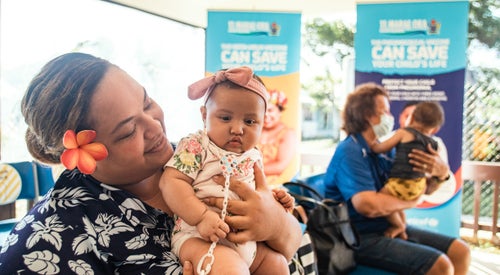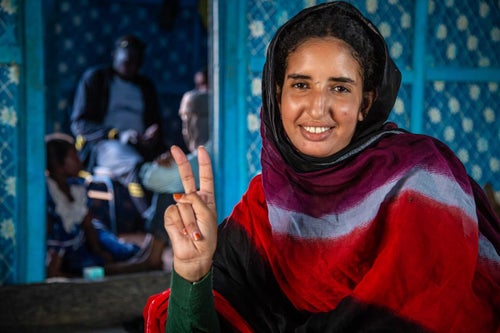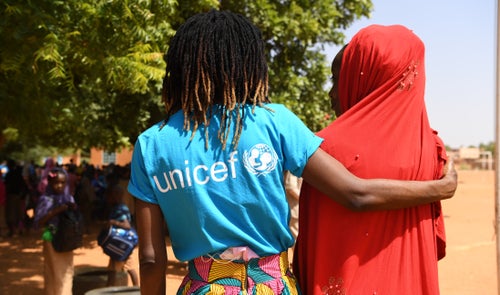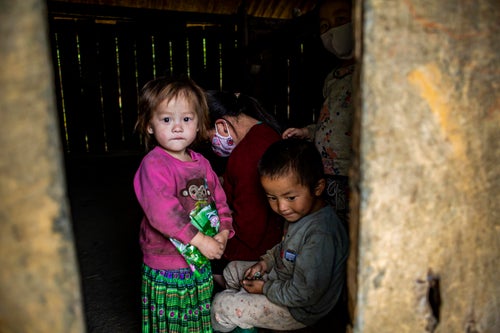Before the middle of last century diseases like polio and the measles struck hundreds of thousands of Australians each year.
Thousands died or were left with permanent disabilities. Babies and young children were the most vulnerable. As vaccines were developed and vaccination campaigns covered the entire country, rates of these diseases declined and today most are close to complete eradication. In fact, thanks to vaccines, most Australian doctors, nurses and parents of young children, have never seen a case of these diseases outside of text books.
Some health workers and parents have not been so lucky. Whether they have survived deadly diseases themselves, or simply advocate for better vaccination coverage, they want to make sure that no child goes through what those before them have suffered.
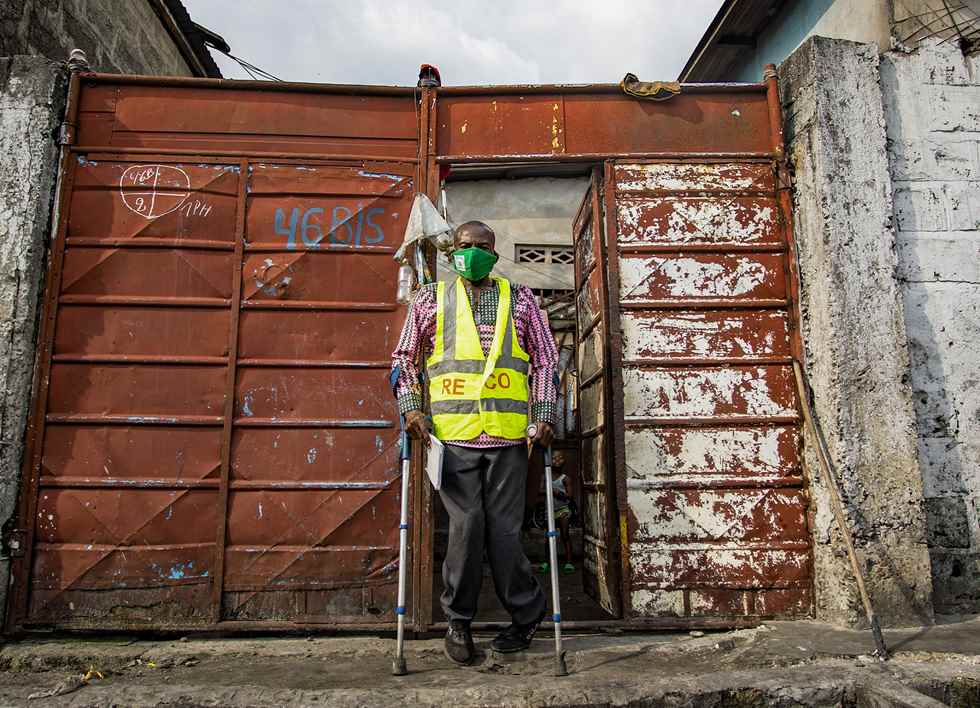
Ending polio with Richard, Kinshasa, DR Congo
Richard Elaka, 60, is a polio survivor in Kinshasa, the Democratic Republic of Congo’s sprawling capital. He was infected at the age of seven and has been moving around on crutches ever since.
For more than 20 years, Richard has been a community outreach worker informing parents in the commune of Makala in Kinshasa about the importance of vaccination and the risks of non-vaccination. "I realised that many families don't get their children vaccinated because of a lack of knowledge," he explains.
Poliomyelitis, known commonly as polio, is a deadly viral infection spread not only through coughing and sneezing but also though contact with an infected person’s faeces.
Whilst the majority of those infected with poliovirus will have only very minor flu like symptoms, in its most severe form, polio can affect the spinal cord, causing paralysis and even death.
"Vaccination is a gesture of love that protects the children."
At his own pace, supported by his two crutches, Richard walks the uneven streets of his community to share his story with the mothers of the commune of Makala.
"In the morning I wake up, I take my awareness materials and go meet families with 0-59 month old children,” Richard says.
“When I arrive in a family, I make the parents understand that vaccination is a gesture of love that protects the children. When they vaccinate their children, they are protecting them.”
“For parents who refuse to have their children vaccinated, I explain to them that I am myself a victim of polio. Look at me. If you don't want your children to be vaccinated, you see the consequences."
"When a child has polio, he will be disabled for the rest of their life. Your children need to be immunised."
We cannot let children’s health go backwards
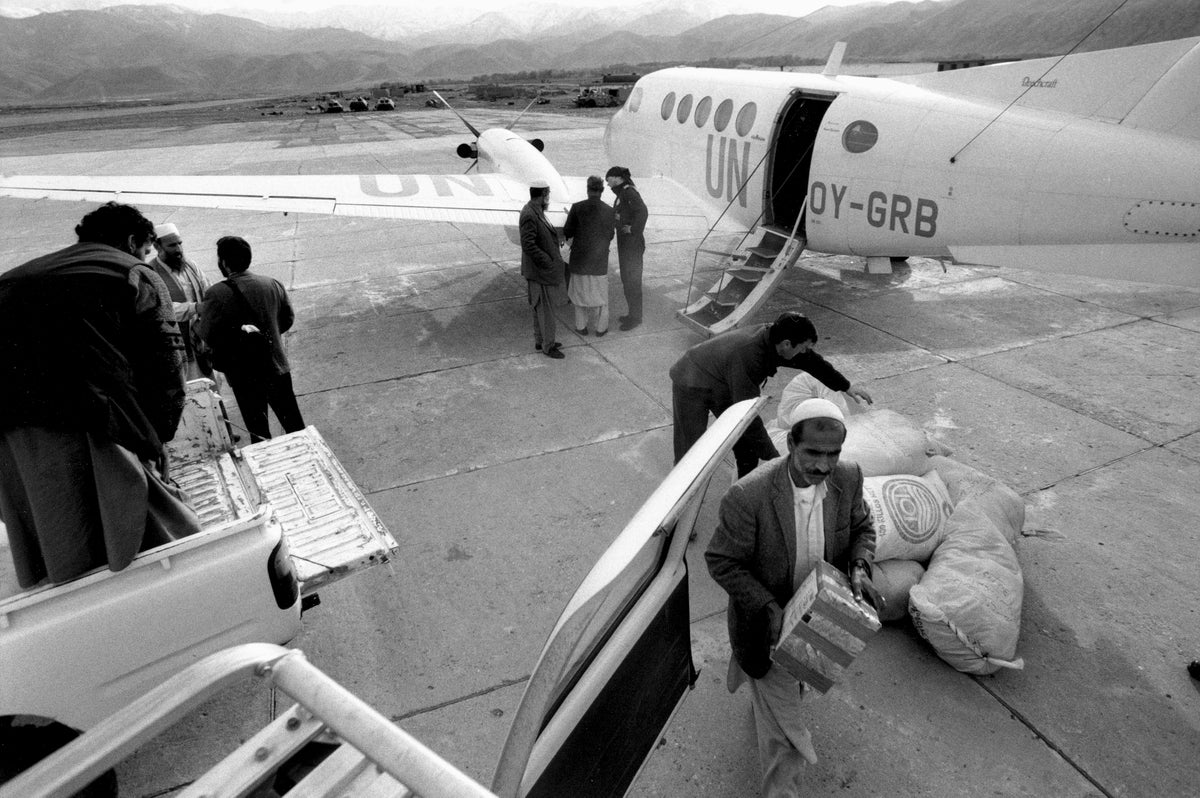
For the first time in three decades, we’re witnessing the largest sustained backslide in childhood vaccinations.
The backslide is being driven by pandemic disruptions, conflict, displacement and increasing vaccine misinformation. As a result, some 25 million children are now missing out on life-saving vaccines every year, placing them at risk from devastating and entirely preventable diseases like measles and polio. The most poor and marginalised children – often most in need of vaccines – continue to be the least likely to get them.
Now, diseases such as polio are threatening to reappear in countries that have gone polio-free for decades, such as the US, Australia and the UK.
UNICEF vaccinates half the world’s children every year. With your support, UNICEF is working day and night to continue this life-saving work, educating communities and delivering vaccines to even the hardest to reach places.
Vaccinate Children. Save Lives.
Help protect children against preventable diseases with lifesaving vaccines.
Preventing measles with Daniel and Meselech, Ethiopia
In search of a better life, Daniel and his wife Meselech came to Addis Ababa from the southern part of their country, Ethiopia, hoping to make a living as weavers.
As they strived to make ends meet and provide for their baby girl, the COVID-19 pandemic limited their opportunities to find buyers and generate income. Adding to the burden, their daughter, Mekdes, fell ill.
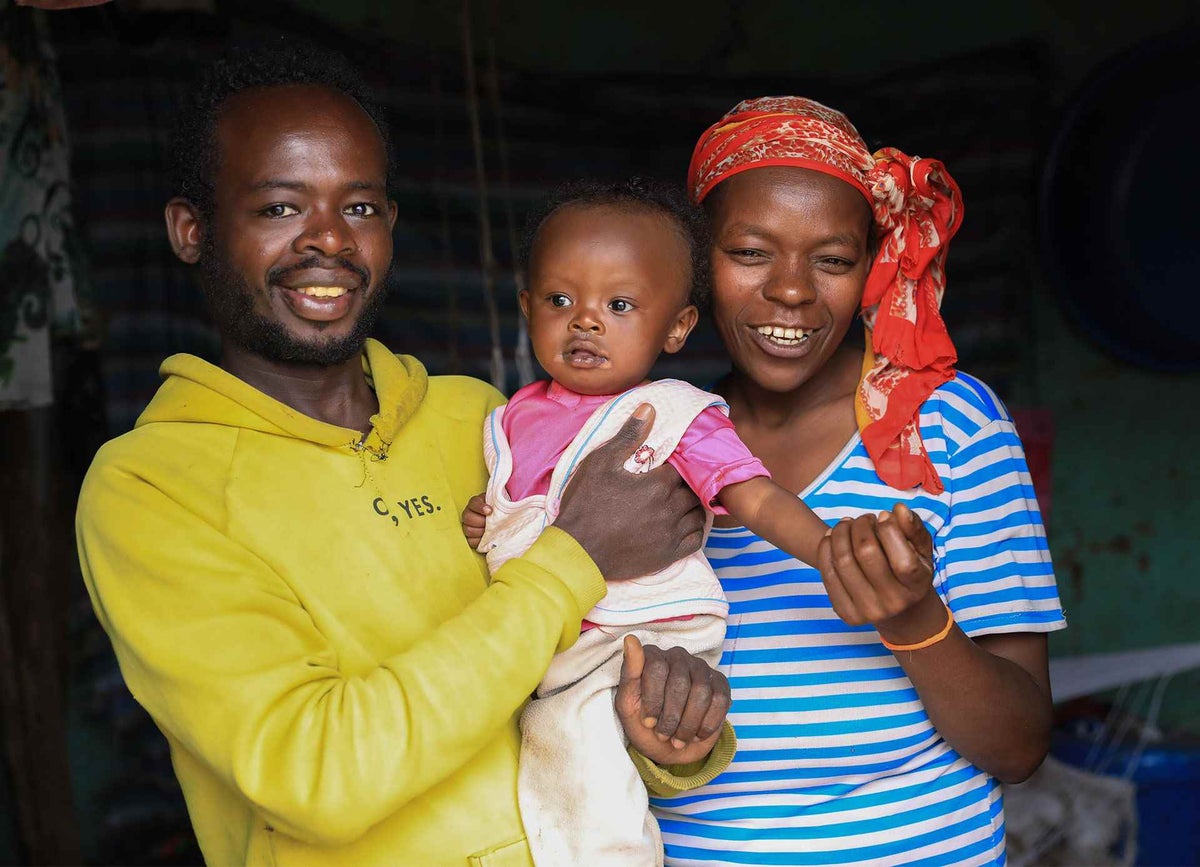
Quickly, health workers in Addis Ababa were made aware that there was an illness spreading in the area where Daniel lives, and that it was killing children.
Health authorities set up a team to come and investigate in the neighbourhood. Through the information they gathered from the parents who had lost their children, the team confirmed that the disease was measles. The community had no idea.
"The disease increasingly made my daughter suffer."
Whilst in many countries parents have virtually forgotten about measles due to excellent vaccination coverage, measles is an incredibly infectious virus that is spread through coughing and sneezing.
The disease is so infectious that an unvaccinated person can fall ill with the virus after simply entering a room previously visited by someone with the disease. Beyond its distinctive red rash, measles can cause pneumonia (severe lung infection) and encephalitis (swelling of the brain) which can kill.
"The disease increasingly made my daughter suffer," says Daniel. "I stopped working altogether because I couldn’t focus. I lost my appetite and kept worrying. I didn’t know where to go or what to do."
During her home-to-home visits to the affected families, Mekdes, a local health worker with the same name as Daniel’s much loved daughter, was able to do an initial examination and refer her to a local community centre for further treatment.
After 10 long days of treatment, Daniel got his happy and healthy baby girl back.
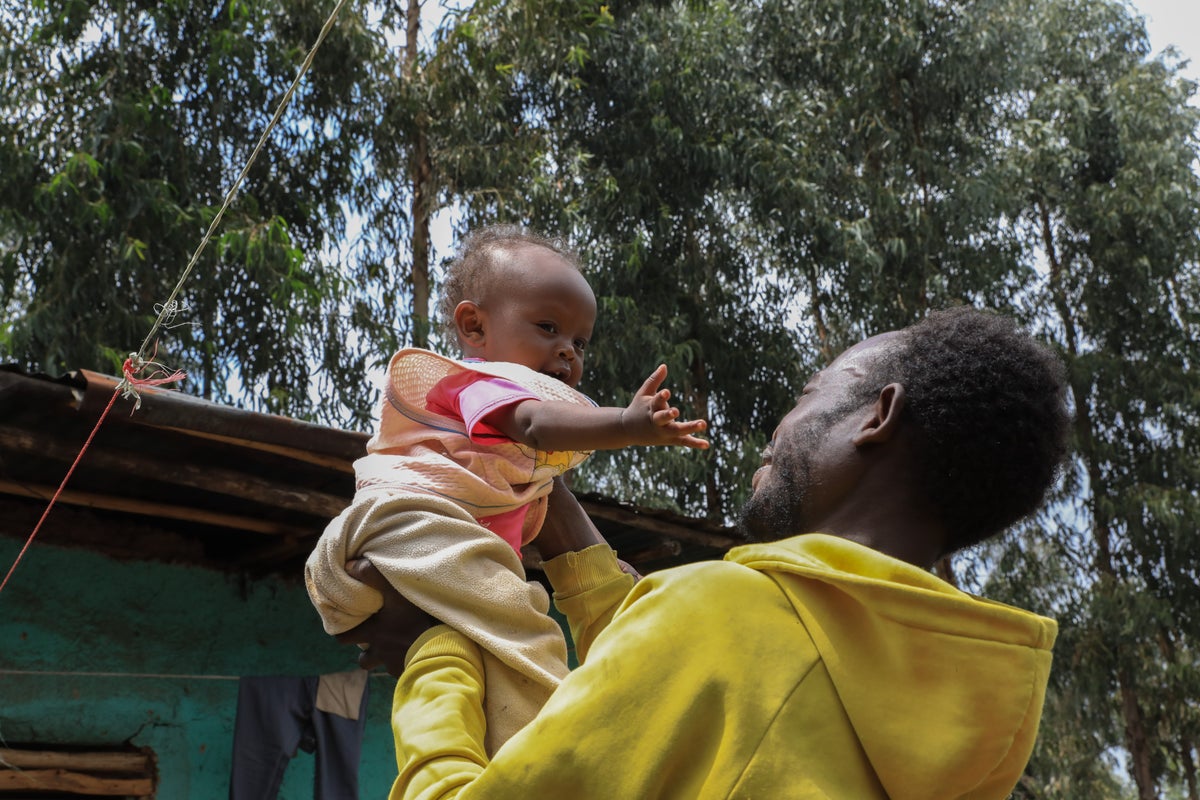
“I have greatly benefited from my decision to take my daughter to a health facility. If I hadn’t taken her there, she could have died. I’m very happy with what happened in the end,” shares Daniel as he plays with his healthy baby.
Devastatingly, Daniel’s brother-in-law, Mengistu lost his one-year-old daughter to the measles outbreak. By the time he got her to the hospital, it was far too late.
We will always find a way to protect children like baby Mekdes. No matter where they are, UNICEF’s teams will cross rivers and climb mountains to make sure every child is given their life-saving vaccines. But we need your help to do it.
Together, we can make sure that COVID-19 doesn’t send children’s health backwards.

Vaccinate Children. Save Lives.
Help protect children against preventable diseases with lifesaving vaccines.
Related articles
Stay up-to-date on UNICEF's work in Australia and around the world



